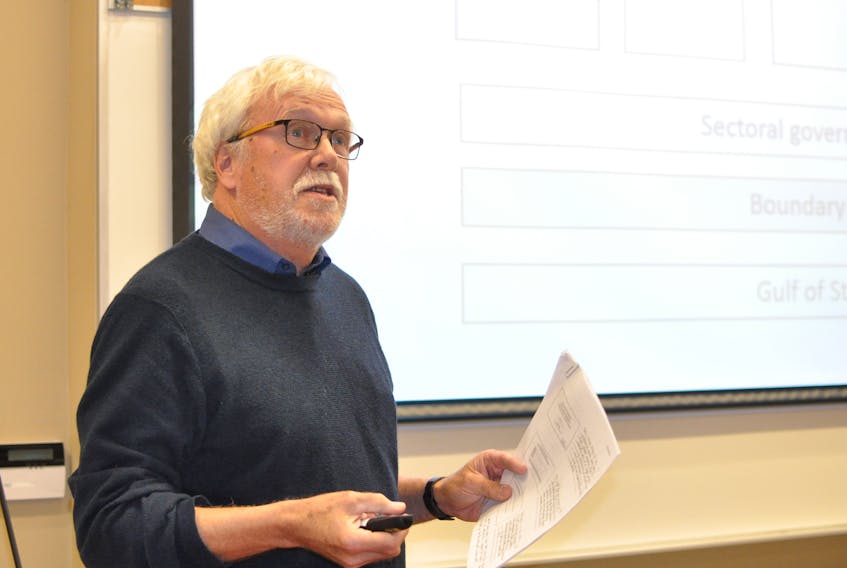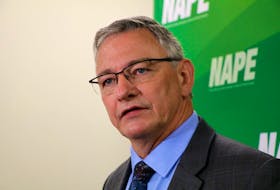Peter Clancy has been in the Maritimes for 35 years and for a long time avoided research on the fishery.
“Because there was so many good political scientists already doing that work. It’s very well covered and very complex,” said the senior research professor at St. Francis Xavier University in Antigonish, N.S. before speaking at an ACAP Humber Arm Coastal Matters session at Grenfell Campus in Corner Brook on Thursday. About 24 people attended the session.
Clancy said his research has primarily been in the forestry, wildlife, offshore petroleum and other resources with a focus on natural resources management and the politics of management.
Related stories:
Using pots could be the way of the future for cod fishery
Eelgrass restoration a key focus for ACAP Humber Arm
He finally tackles the fishery in the paper “Cod at the Fisheries — Environment Interface: Managed Recovery or Species at Risk?”
The paper is part of a bigger project — Environmental Governance in the Gulf of St. Lawrence — that he is working on with Mario Levesque, associate professor at Mount Allison University in Sackville, N.B. Levesque was a former professor at Grenfell Campus. The project is now in its fourth year.
Looking at the Gulf of St. Lawrence they ask what kind of policy fields involve an environmental component, and look at eight-10 subsectors with the fishery being one.
He said his talk would be about a case within a case.
“It asks about the debates that have taken place whether Atlantic cod in their depleted condition qualify as a species at risk.”
He said the question has caused a very interesting debate in federal policy circles and to some degree among the provinces and interest groups.
The study focuses on the northern and southern Gulf populations, and Clancy said the damage was done before 1992. In the nearly 30 years since, he said, it doesn’t look like much has improved.
“I think at this point in time the science points to the fact that in the Gulf there has not been much of a comeback.”
The message coming out of the science is that cod in the Gulf is stuck at a very depleted level.
The work Clancy and Levesque are doing will form part of a book they are writing on environmental governance in the Gulf.
He said they hope it will draw a lot more attention to the Gulf of St. Lawrence as an aquatic region, that it will trigger new discussions about best management practices in the Gulf and build public awareness that the Gulf as a whole is worth managing.
Levesque will speak at next month’s Coastal Matters session at the university on Oct. 17. His topic will be Environmental Considerations, Decision-Making and Gulf of St. Lawrence Infrastructure.









